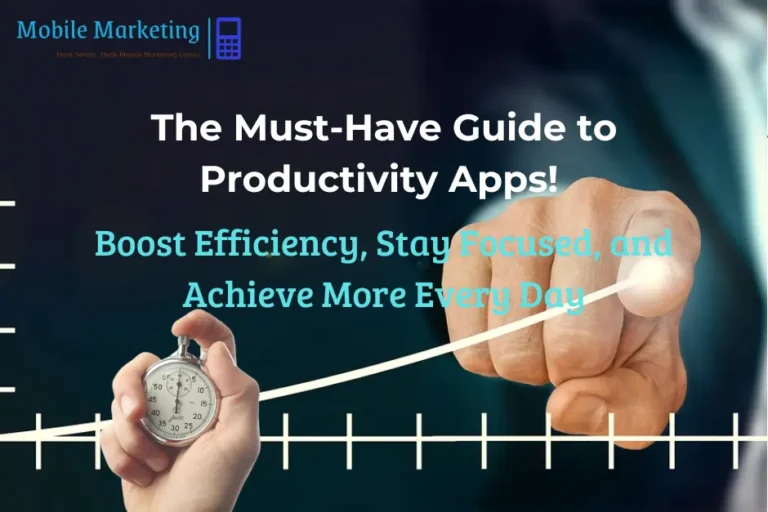Top Fitness Apps to Transform Your Health and Lifestyle

Fitness apps have become indispensable tools in today’s fast-paced world, making health management accessible and convenient right from your smartphone. As awareness around personal well-being grows, millions turn to exercise Apps to track their workouts, diet, sleep, and mental health. These innovative digital health solutions empower users by offering personalized experiences, helping build consistent routines, and enhancing overall quality of life. Whether you’re a fitness beginner or an athlete, incorporating fitness apps into your daily routine can significantly boost motivation, accountability, and results, transforming health goals into achievable reality.
Table of Contents
The Rise of Digital Health Solutions
In recent years, digital technology has profoundly transformed the fitness industry, leading to the emergence of innovative tools that promote healthier lifestyles. Wearable devices, fitness applications, and online coaching platforms have become integral components of personal health management, offering users unprecedented access to personalized fitness regimes and real-time health data. This technological shift has democratized fitness, making it more accessible and engaging for a broader audience.

The importance of digital health solutions has escalated, particularly with the widespread adoption of mobile technology. Smartphones and wearable devices now enable continuous health monitoring, allowing users to track various metrics such as physical activity, heart rate, sleep patterns, and nutritional intake. This continuous data collection facilitates proactive health management, empowering individuals to make informed decisions about their well-being. Furthermore, the integration of artificial intelligence and machine learning into these platforms has enhanced their ability to provide personalized recommendations, thereby improving user engagement and outcomes.
In 2023, the digital health market in the United States reached a valuation of approximately USD 81.45 billion and is anticipated to expand significantly, hitting USD 487.76 billion by 2034. This growth represents a robust compound annual growth rate (CAGR) of 19.6% from 2024 through 2034. Notably, North America led the global digital health market in 2023, capturing the highest revenue share at 38.45%.
This expansion is further evidenced by the proliferation of digital health applications, with the number of available apps reaching 337,000, encompassing a wide range of disease-specific functionalities that bring more value to health systems. Additionally, consumer adoption of digital health tools has surged, with 80% of respondents in a 2022 survey reporting having accessed care via telemedicine at some point in their lives, up from 72% in 2021. These statistics highlight the rapid integration of digital health solutions into daily life, reflecting a significant shift towards technology-driven health and fitness management.
Essential Types of Fitness Apps

1. Health Tracking Apps
Health tracking apps, such as Fitbit, Apple Health, and Sleep Cycle, offer valuable insights into personal health metrics including daily steps, heart rate, sleep patterns, and overall physical activity. By continuously monitoring these metrics, users become more aware of their health behaviors and patterns, facilitating informed lifestyle decisions and proactive health management. Users benefit from heightened awareness about their physical condition, enabling them to identify health trends and make informed choices to improve their overall well-being.
2. Workout Apps
Workout apps like Nike Training Club, 7-Minute Workout, and Peloton provide structured exercise guidance and motivation. These apps typically feature customizable workouts, instructional videos demonstrating correct form, and tools to track fitness progress. They cater to various fitness levels, offering targeted plans for beginners to advanced athletes, thus promoting consistent exercise routines and helping users achieve their fitness goals efficiently and safely.
3. Nutrition Apps
Nutrition apps such as MyFitnessPal, Lifesum, and Lose It! assist users in managing their dietary intake. They provide calorie counting, meal planning, barcode scanning for convenience, and detailed tracking of nutrients consumed. Such apps help users maintain balanced diets, monitor portion sizes, and make healthier eating choices, contributing significantly to overall fitness and weight management objectives.
4. Mental Wellness Apps
Mental wellness apps, including Headspace, Calm, and Insight Timer, focus on enhancing mental health through mindfulness, meditation, and stress management techniques. Users benefit from improved mental clarity, reduced stress levels, and better sleep quality. By consistently engaging with these apps, individuals develop healthier coping strategies, experience enhanced mental clarity, and achieve greater emotional balance and resilience.
5. Workout Planning Apps
Workout planning apps, such as Nike Training Club, 7 Minute Workout, and Freeletics, offer comprehensive fitness plans tailored to individual goals. Key features include video-guided exercises, personalized workout schedules, and progress tracking to monitor achievements over time. These apps ensure users remain motivated, adhere to structured fitness routines, and achieve measurable fitness milestones effectively, enhancing overall physical performance and health.
Here’s a clear and concise summary table for the Essential Types of Fitness Apps:
| Type of Fitness App | Purpose | Popular Examples | Key Benefits |
|---|---|---|---|
| Health Tracking Apps | Monitor health metrics (e.g., heart rate, sleep, daily activity) | Fitbit, Apple Health, Sleep Cycle | Increased health awareness, informed lifestyle decisions |
| Workout Apps | Structured exercise guidance and motivation | Nike Training Club, 7-Minute Workout, Peloton | Consistent exercise routines, effective goal achievement |
| Nutrition Apps | Track dietary intake, calorie counting, meal planning | MyFitnessPal, Lifesum, Lose It! | Improved diet management, healthier eating habits |
| Mental Wellness Apps | Stress management, meditation, mindfulness practices | Headspace, Calm, Insight Timer | Mental clarity, reduced anxiety, improved sleep quality |
| Workout Planning Apps | Personalized fitness plans and exercise tutorials | Nike Training Club, 7 Minute Workout, Freeletics | Tailored workouts, effective progress tracking |
Benefits of Incorporating Fitness Apps into Your Routine
Incorporating fitness apps into your daily routine brings numerous benefits, starting with accessibility. These apps seamlessly integrate into daily life, enabling you to monitor your health conveniently through your smartphone or wearable devices, regardless of location or schedule constraints.
Motivation is another powerful advantage. Exercise Apps commonly feature gamification elements such as badges, achievement levels, and interactive goal-setting, significantly boosting user engagement. Regular reminders and push notifications keep users on track, ensuring consistent adherence to their fitness routines.
A personalized experience further enhances the effectiveness of fitness apps. By analyzing user-specific data like activity levels, dietary habits, and sleep patterns, apps deliver customized recommendations and guidance tailored specifically to individual health and fitness goals. This personalized approach ensures higher engagement and improves outcomes by addressing users’ unique needs.
Fitness apps also excel at progress tracking, providing visual representations of your achievements and milestones. Users can easily monitor their progress over days, weeks, or months, adapting their fitness strategies accordingly. Seeing measurable results reinforces motivation and encourages continual improvement.
Finally, many fitness apps foster community support, enabling users to participate in social sharing, friendly competitions, and group challenges. Community engagement significantly enhances accountability, making the fitness journey more enjoyable and less solitary. It helps users stay motivated and connected, driving long-term success in achieving fitness goals.
Overall, integrating fitness apps into your routine significantly enhances health management through accessibility, motivation, personalized insights, clear progress tracking, and supportive community interactions. Here are summary of key advantages:
| Benefit | Description |
|---|---|
| Accessibility | Apps integrate easily into daily routines, enabling convenient health monitoring through smartphones or wearable devices, regardless of location or schedule. |
| Motivation | Apps incorporate gamification features like badges, achievement levels, and goal-setting, significantly increasing user engagement and motivation. |
| Personalized Experience | By analyzing data (activity, diet, sleep), apps deliver customized guidance tailored to users’ specific fitness objectives, ensuring effective results. |
| Progress Tracking | Apps visually track milestones and achievements, enabling users to monitor progress clearly and adjust their fitness goals accordingly. |
| Community and Support | Apps often include social sharing, competitions, and community challenges, enhancing accountability and making the fitness journey enjoyable. |
Conclusion
Fitness apps have revolutionized how individuals approach their health and wellness journeys, providing essential tools for tracking progress, boosting motivation, and offering personalized guidance. By making health management accessible and engaging, these digital solutions empower users to achieve their wellness goals efficiently. To fully benefit, it’s crucial to select fitness apps that closely align with your specific needs—whether improving diet, increasing physical activity, or enhancing mental wellness. Take advantage of these innovative tools today, and begin transforming your health journey into a rewarding, achievable, and fulfilling lifestyle experience.
More Insights on Lifestyle Apps:




One Comment
Comments are closed.